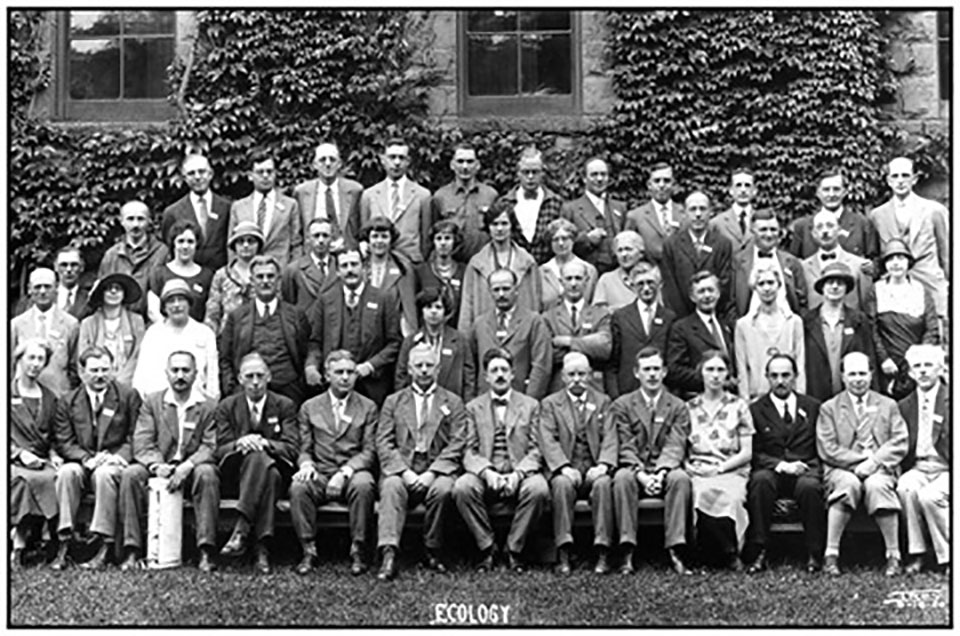1914: The beginning
What do you think of such a thing as a society of ecologists to include both botanists and zoologists and to be a society for field work rather than a society for the reading of papers?
—Letter from Robert H. Wolcott to Victor E. Shelford, March 27, 1914
The first discussions on the formation of the Society took place in 1914 in the lobby of the Hotel Walton in Philadelphia, Pennsylvania, at a meeting of animal and plant ecologists organized by Henry Chandler Cowles. It became official on December 28th, 1915, in Columbus, Ohio, at the meeting of the American Association for the Advancement of Science (AAAS). A group of about 50 people voted to form the Ecological Society of America, adopted a constitution, and set the next meeting. Dr. Victor E. Shelford of the University of Illinois served as the first president.
The Society was founded for the purpose of unifying the science of ecology, stimulating research in all aspects of the discipline, encouraging communication among ecologists, and promoting the responsible application of ecological data and principles to the solution of environmental problems. The Society has grown from the first interested few to more than 10,000 members worldwide.

According to the 1917 Bulletin of the new Society, which also published a directory of members:
MEMBERSHIP in the Ecological Society is open to those who have advanced the science of ecology; those who have attained recognition through their contributions to other fields, and are interested in ecology; those who have conducted researches in ecology which are not yet published; those who have the training and opportunity to conduct observations or instrumentation of importance in ecological work; and those who are interested in the application of ecological principles.